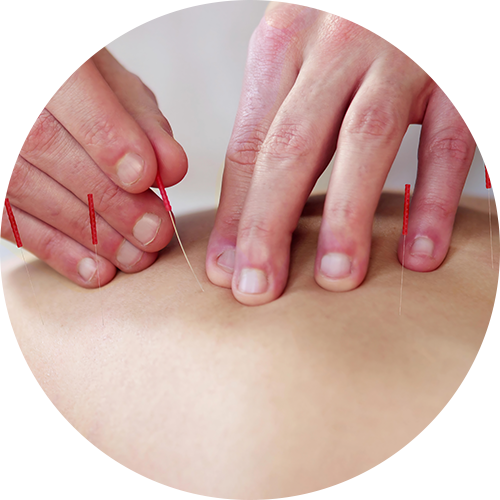
WelcomeCharlotte Chiropractic and Rehab
At Charlotte Chiropractic and Rehab, Dr. Derek Maul offers personalized, holistic treatments to help you find relief from pain, improve mobility, and enhance your quality of life. We provide a range of services including chiropractic care, acupuncture, dry needling, and more to address conditions like back pain, sports injuries, and chronic issues. Our goal is to work closely with you to develop the best treatment plan tailored to your needs. Call today or book your appointment online!

Dr. Maul is a proud founder of the Hands for Life Foundation
Click below to find out more!
Learn Morewhere does it hurt?
Headaches
A headache is a very generalized term given to pain that is felt in the head or sometimes the neck. There are many different types of pain associated with headaches ranging from acute localized discomfort to a more generalized ache. Some headaches may appear suddenly and only last for a short period of time while others may build gradually and last for several hours.
where does it hurt?
Neck pain
Neck pain is a relatively common ailment, of which most of us will experience at least once in our lifetime. In most cases, neck pain will improve and disappear on its own, but if you frequently suffer from this problem, or find that conventional ways of relieving your pain are not working, you may want to consider chiropractic care.
where does it hurt?
Shoulder pain
The shoulder joint is one of the most complex joints of the human body. The shoulder depends on multiple systems of ligaments, muscles and tendons. These systems work together to stabilize the shoulder and provide functional movement along with allowing other supporting joints to do the same.
where does it hurt?
Joint pain
As people age, it is a common often belief that the pain and discomfort associated with our joints is a normal occurrence that we are forced to live with. While our joints can experience levels of degradation as we age, the pain and reduced mobility that is often associated with arthritis doesn’t have to be something that we suffer through. Instead, let's review some of the facts around chiropractic care and how it can be beneficial in treating the pain associated with arthritis.
where does it hurt?
Wrist/Hand pain
As the professional community ages, the diagnoses of carpal tunnel syndrome continue to rise. Carpal tunnel syndrome is commonly associated with the repetitive movement related to typing on a keyboard with improper hand positioning. Carpal tunnel syndrome creates a burning, numbness, or tingling sensation in the hands or wrists and can occur on one or both sides.
where does it hurt?
Lower Back pain
Lower back pain is an exceptionally common complaint and it is estimated that 80% of Americans will suffer from it at some point during their lifetime. Lower back pain is also a leading cause of absence from work due to ill health, even though more than half of all cases are believed to be a direct result of the patient doing a job that involves continual sitting.
where does it hurt?
Hip pain
Hip pain can be temporary or chronic, and can be caused by a range of different factors, the most common of which is osteoarthritis. Patients with osteoarthritis experience inflammation of the tissues around the joint including damage to cartilage, and this can lead to pain, stiffness and mobility issues. Less commonly, hip pain can be caused by other issues with the musculoskeletal system such as problems with the shape of the bones, infections or fractures. The good news is hip pain can nearly always be improved using chiropractic treatment.
where does it hurt?
Knee pain
Knee pain is a very common issue, and in most cases, occurs as a result of an injury to the joint and surrounding soft tissue. This can be from an individual event or as a result of overuse, such as through playing sport. Stiffness and inflammation often accompany knee pain, and you may find it difficult to use the joint as you would normally. Chiropractic treatment is highly beneficial at treating knee pain and its associated effects, as well as the underlying cause.
where does it hurt?
Foot pain
Many people live with consistent and regular foot pain. While others may have pain that occurs only when they are engaged in certain activities. While orthotics may not be the right answer for everyone to help with this pain, it’s a good idea to consult with a professional to decide if orthotics are a good option for you.

Derek Maul, DC
Derek Maul, DC, is a chiropractor who takes a holistic approach to his work at Charlotte Chiropractic and Rehab in Charlotte, North Carolina. He’s committed to empowering his patients to live a healthy lifestyle and gets to know each of them personally in order to design and implement personalized treatment plans according to their individual needs.
Patient Testimonials
Over 300 5-Star Reviews

















Dr Maul has what seems to be missing in the medical care industry...thoughtfulness. Not just in listening to your issue with focus, but treating it with specific purpose - not just cookie-cutter, same old techniques. Highly recommend.
Gary C.
View All Reviews